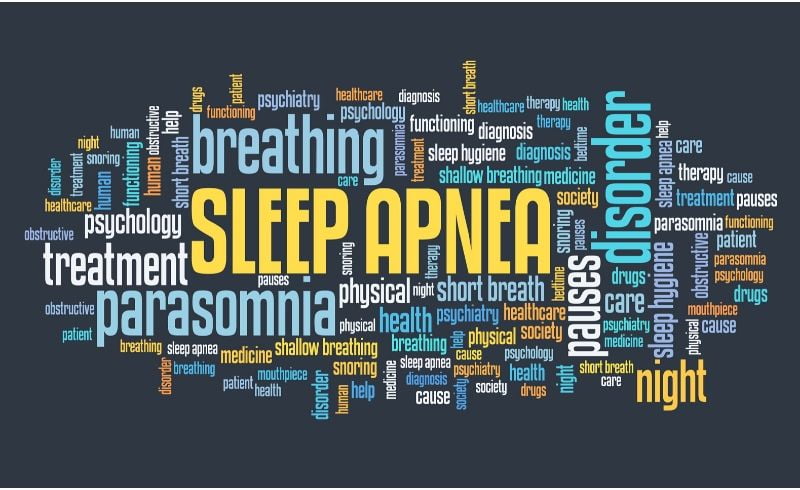
Picture this. You wake up in the morning with the feeling that you didn’t sleep at all. Something was just wrong. You know you snore a lot, but snoring can’t be blamed for that, right? Well, no. But loud snoring and inability to get a good night’s sleep can definitely be a telltale sign that there is an underlying cause for both. There is a range of symptoms that can give away that there is something wrong with your sleep at night. Today we grouped them in a neat collection of top 10 sleep apnea signs that you may not be aware about. Read on to learn more about this serious sleep disorder.
More than simple snoring
You may be surprised how many people feel what we just described above. The fact is that more than a quarter of adults experience the same signs and symptoms that you may have experienced. Al lot of these are possible telltale signs of obstructive having sleep apnea (OSA).
The scary part is that you may be suffering from sleep apnea without even realizing it. If you happen to experience the following symptoms, chances are that you actually do have OSA.

The NEW AirSense 11 CPAP is here!
With Next-Day delivery right to your door!
The top 10 signs of Obstructive Sleep Apnea
If you experience one or more of these symptoms on a regular basis, schedule an appointment with your doctor to understand the underlying cause. Here are the top 10 ten sleep apnea symptoms that you should know about:
- Loud snoring;
- Episodic stops of breathing and awakenings during sleep;
- Morning headaches;
- Waking with a dry mouth;
- Increased blood pressure;
- Low blood oxygen levels;
- Having trouble focusing;
- Daytime sleepiness and fatigue;
- Daytime irritability and mood swings;
- Inability to get a good restorative sleep (no matter how many hours of sleep you get).
Loud snoring
Many people snore regardless of age and gender. Although not every heavy snorer has obstructive sleep apnea, the majority of OSA sufferers are also loud snorers. In fact, loud snoring is the most frequent telltale sign of sleep apnea. That is because with sleep apnea your upper airways become obstructed at night, which contributes to heavy snoring. The OSA obstruction, combined with a narrowing of the airways, creates the snoring sound that your bed partner might have become all too familiar with.
Episodic gasping for air during sleep
The meaning of the term ‘apnea’ (apnoea, Greek) means a temporary cessation of breathing during sleep. When the breathing cessation occurs, it is up to your brain to immediately understand what is happening to your body and send a panic signal to it to resume your breathing. This panic signal causes the lungs to emergency activate again, making you choke or gasp for air as your body overcomes the apnea. For as long as you experience the obstructions, these brain-stimulated micro-awakenings are going to happen. And they’ll continue to make you gasp for air again and again throughout the night–until the morning clock rings and it’s time to go out of bed and deal with the aftermath.
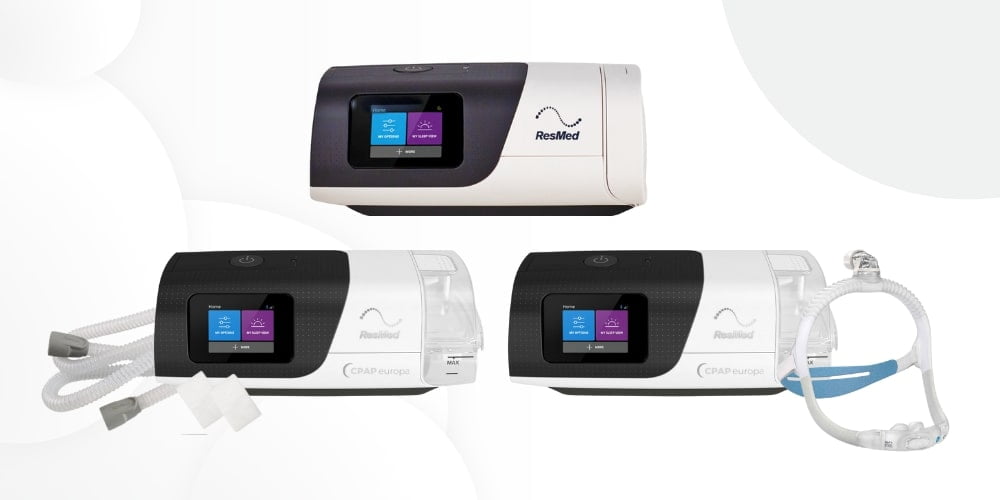
The NEW AirSense 11 CPAP is here!
With Next-Day delivery right to your door!
Waking with a dry mouth
A combination of snoring and sleep apnea most often leads to waking with a dry mouth. And, dry mouth comes with its own group of additional complications–like sore throat, bad breath, and constant thirst. Studies have found that 1 out of three OSA sufferers that don’t use a CPAP machine experience dry mouth symptoms in the morning. On the other end of the spectrum, the majority of CPAP users stop experiencing early morning dry mouth due to their PAP devices do not even allowing the OSA obstruction to happen in the first place. What’s more, many of the contemporary CPAP devices have built-in humidifiers that prevent dry mouth.
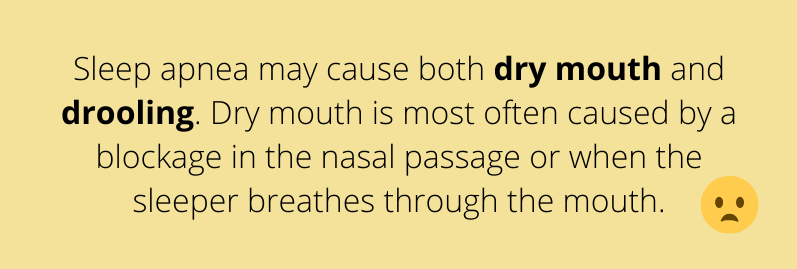
Trouble concentrating
Starving the brain out of oxygen during apneic events inevitably affects brain function, research has shown. Studies have also shown a correlation between healthy brain chemical levels and OSA, with altered levels leading to having difficulty concentrating and memory problems.
In short, if you don’t get enough restorative sleep, your brain can’t adequately regulate the required chemicals for full cognitive functionality. This is especially true in regards to the required levels of gamma-Aminobutyric acid (GABA). GABA is the chemical responsible for staying calm and focused.
Studies have found that sleep apnea also affects the levels of glutamate, which is responsible for normal brain function.
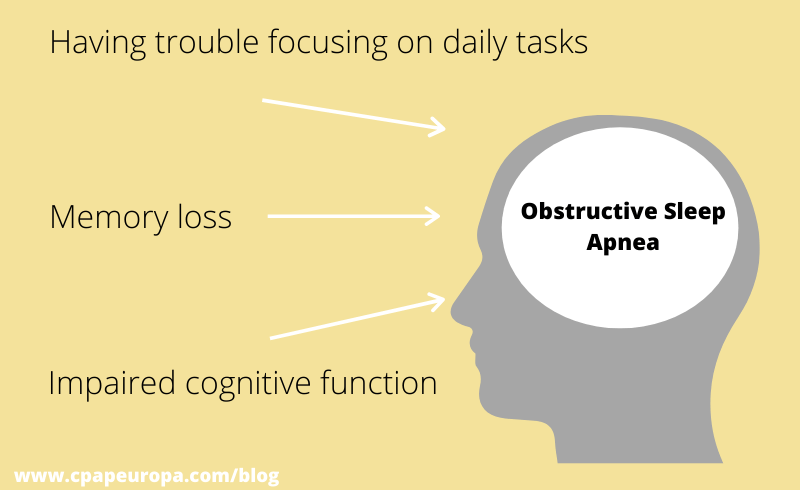
Increased blood pressure and low blood oxygen levels
Sleep apnea causes extreme pauses in breathing during sleep. Each of these pauses causes a sudden drop in blood oxygen levels, and puts additional stress on the cardiovascular system.
During these pauses, the brain sends signals to the blood vessels to in crease the oxygen delivery to the heart so that your organism can compensate for each drop. However, the sudden increase of blood flow puts pressure on the blood vessel’s walls, which, in turn, increases the risk of high blood pressure (hypertension).
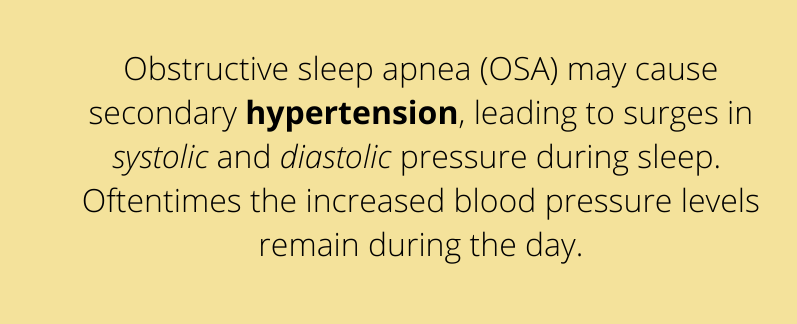
Morning headaches
Starving the brain of oxygen during apneic events causes the arteries to dilate to increase blood flow. The dilation naturally increases the exerted pressure in the head which, in combination with constantly interrupted sleeping cycle, causes morning headaches.
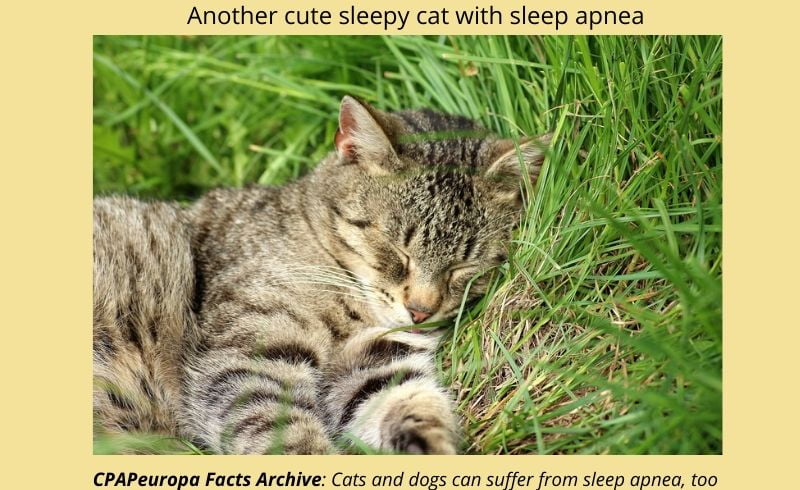
Daytime sleepiness and fatigue
Feeling tired all day after a ‘normal’ night with sleep apnea is one of the most common symptoms of the sleep disorder–and one of the most debilitating ones, too. In fact, any sleep-disturbing disorder comes with daytime fatigue. Your body simply cannot get the rest it needs.
Irritability and mood swings
Sure, you had a bad night of snoring and gasping for air all the time. But no one would really understand that–especially if you are constantly cranky and irritable around them. Trying to explain that your bad mood is caused by lack of a good night’s sleep and because your brain doesn’t receive much GABA chemicals is definitely an option, but hands down the best thing you can do is take action see the doctor.
Constant awakenings at night
Waking too often at night? Having to go the bathroom in the middle of your REM sleep? These are yet another ‘pleasant’ symptoms going hand in hand with sleep apnea. Irregular breathing and loud apneic snoring would most likely interrupt your sleep (and, unfortunately, your bed partner’s sleep as well).
Increased stress levels and increased risk of depression
Decreased blood oxygen levels and impaired cardiovascular system leads to extra exertion on your body, high blood pressure and high stress levels. New studies have shown that patients with obstructive sleep apnea have higher levels of the neurotransmitter glutamate and low levels of the GABA neurotransmitter. Dysfunction of glutamatergic neurotransmission is considered to be a core feature of stress-related mental illnesses.

The NEW AirSense 11 CPAP is here!
In almost any list of top 10 sleep apnea symptoms one can run into loud snoring, breathing pauses, sounds of choking or gasping for air during the night, daytime fatigue and more. The point of this informational article, however, is not just to list these signs of OSA, but to convey the idea that none of these symptoms is something you should tolerate and live with. So take matters into your own hands and make an appointment with a sleep specialist who can diagnose you and recommend treatment options for sleep apnea if you indeed have one.
Related articles:
I was diagnozed with sleep apnea back in 2015 after almost 10 years of experiencing most of the symptoms you display above, especially the gasping for air and breathing pauses at night. My wife suspected there’s something wrong and asked me to see a specialist about it. Weight loss definitely helped to reduce a percent of my airway obstruction because I had moderate OSA back then.